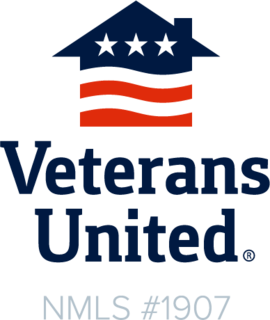
For most people, the ambition to acquire their own home is their most important goal, surpassing all others, and it is the primary influence and motivation for how they conduct their business, financial, and personal lives.
There are a number of benefits to owning your own home: it provides more housing security for you and your family; the equity you have in your home is a form of savings account, instead of paying rent to someone else; there are also tax benefits; and, let’s admit it, there’s a sense of pride in home ownership.
The majority of people will have to finance their home by obtaining a home mortgage from a lending institution. The purpose of this article is to provide a guide to homeowners covering the following 5 critical steps:
Before a prospective homeowner can begin the quest towards purchasing a home, there are many factors to consider, most of which are determined by some basic facts and assumptions.
How big is your family? What neighborhoods are you willing to consider?
Are schools a factor? Is a single-family home a requirement or is a condo an option?
Based on your income and assets, what kind of home can you afford?
For some home buyers, living in a specific neighborhood takes precedence above all else, whereas for others, the home itself is more important. In a perfect world, you’d find the ideal home, in your neighborhood of choice, at a price you can afford, but realistically, most people will have to make some compromises.
Make a list of the features you want in a home– the number of bedrooms, a fenced yard, granite countertops, a garage, etc.–and then rank them in terms of priorities. Decide whether the house or the neighborhood matters more to you, or whether you’re willing to make a longer commute in order to own a home with a larger lot.
These kinds of decisions need to be made before beginning the search for your new home. Learn about what a neighborhood is really like, including information about the neighbors, school ratings and more with Rocket Homes Real Estate LLC.. Their website allows you to search the latest home listings and connect with trusted real estate agents in their network, so you can be sure you’re working with a local expert in your area.
But don't place too much value on their "estimate" because often real-world prices are different.
Nearly all mortgage loans and lenders require some amount of cash as a down payment. The amount you've set aside for this could determine the kind of mortgage you qualify for. It will also impact how much you can afford to borrow for a home.
If you're searching for "how to buy a house" you might have already put away some savings - if that is you, you can skip to step 3.
Most lenders prefer a down payment of 20% or higher to qualify for a conventional loan, but there are more than 2,400 home buyer assistance programs in the United States that offer down payment help in the form of grants, low-interest or deferred loans, forgivable loans, and other programs. Help with closing costs may also be available.
However, you should be aware that with a smaller down payment, you’ll likely be required to pay for mortgage insurance, and your loan application will be subject to greater scrutiny.
Here are several loan types that allow a smaller down payment amount:
VA: Eligible veterans and their spouses can qualify for Veterans Administration loans. See if you qualify for a VA Loan with $0 Down and no mortgage insurance from our partner Veterans United.
FHA: The Federal Housing Administration offers 3.5% down payment mortgages through participating lenders. FHA loans are also easier to qualify for and have slightly lower rates than conventional mortgages.
GSE-backed loans: Fannie Mae and Freddie Mac are both currently insuring 97% loan-to-value loans. That enables lenders to offer 3% down payment mortgages to qualified buyers.
USDA: Home buyers in rural and suburban areas may be able to qualify for home loans offered by the U.S. Department of Agriculture. USDA loans offer low rates and 100% financing.
Our partner is known for their award winning customer service and would be happy to help support you through this process. They’ll ask a few questions about where you are in the buying process and from there they’ll provide personalized support and advice.
There are millions of homes to choose from and it can be daunting if you start house hunting without narrowing your search first. To set yourself up for success, the best place to start is to consider how much home you can afford.
Many banks will require that your monthly costs can't exceed a percentage of your income (for example 28%). That means if you earn $50,000 per year, your total monthly housing costs should not exceed $1166 (28% of your monthly income). But it's more than just your income that the bank will look at.
In addition to your income, if you have recurring debts, the total monthly payments on existing debt plus new payments for your mortgage may not be allowed to exceed a certain threshold (for example 41%). Using the example above that would mean that if your monthly debt payments are in excess of $541 per month (bringing your total debt of $541 + $1166 = $1708 or 41% in total).
You can use a mortgage calculator or to put it simply, someone that makes $50,000 before taxes should probably target a home that is $250,000 or no more than 5 times their annual salary.
But if you don't want to do all the math yourself, you might simply move on to step 4 which is arguably the most common step people skip!
One of the number 1 mistakes made by home buyers is NOT shopping around for a mortgage! Your Realtor knows a guy, or maybe your parents used a mortgage broker in the past.
Don't fall into this trap. It can take some time, but you're going to have your mortgage for the next 30 years, so it's really worth prioritizing.
To begin this process, you can start online with a lender like or .
Fill out the form with honest information to get a reliable quote. They're going to verify this information anyway so putting in misinformation won't help you at all in the long term.
Qualifying for a mortgage loan in order to buy a home can often be a stressful and strenuous process. In the end, the pride, security, comfort, and freedom that comes from owning your own home makes all the effort worthwhile.
By this point, you should have a pretty good idea about what kind of home you’re looking for, and the neighborhood you’d like to live in.
You also know how much you've saved for a down payment, which in turn will determine the type of loan you should pursue. If you've compared a few rates you should request a pre-qualification letter.
offers what they call "verified approval" after they verify your income, assets and credit which can give you the same strength of a cash buyer.
In today’s competitive housing market, it is not uncommon for a seller to receive multiple offers on their home. Having a pre-qualification letter in hand could be the difference in your ability to purchase the house you desire. It proves to the seller that you are serious and provides you with bargaining power which could give you an advantage over other buyers.
RateShield approval (also offered by Quicken Loans) can lock your rate for up to 90 days while you find your new home.
What's so powerful about RateShield is that in today's market, interest rates may change between now and when you are ready to close on your home.
If you received a verified approval with Rateshield from , then once you've found your new house, if rates are up, your rate stays the same. If rates have dropped, you automatically get that new rate. Either way you win!
Top Rated Mortgage Rates
- Low Rates: Quick Quote and Approval
- Rate Lock Protection. Lock Now Before Rates Go Up
- Pre-Approval Letter with Rate Lock Protection
- Over $100 Billion Funded. 21 Years in Business
- Buy with 0% down when you qualify for a VA Home Loan
- Dedicated Loan Teams support you at every step (even past close)
- 4.8/5 average rating, 330,000+ reviews
- #1 VA Lender: More Veterans chose Veterans United than any other VA Lender in FY2022 (According to VA Lender Statistics)
- 600 minimum credit score
- FDIC Bank since 1919 with A+ BBB Rating
- Flexible terms up to 30 years
- Low down payment options
- Most loans are closed in 30 days or less
- Online quote without commitment



